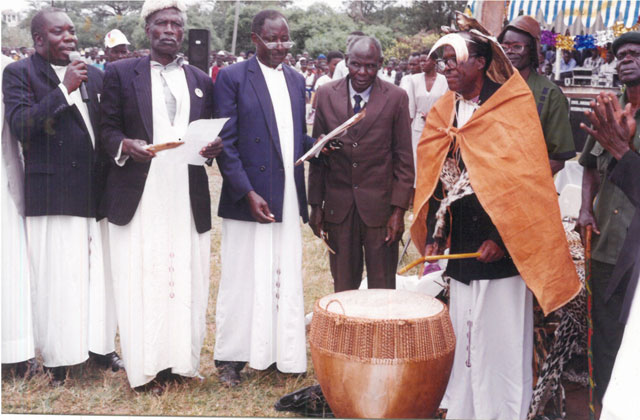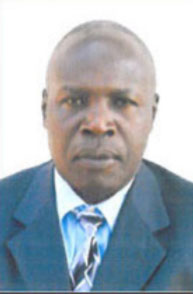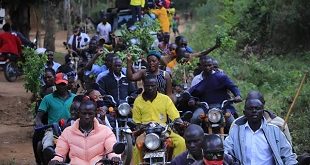
HISTORY COLUMN | Salmom Wandera Owino | The Jopadhola also known as Badama (the name given by the Baganda invaders) belong to a sub group of Nilotes called the Luo people.
The Jopadhola originate from a Luo prince called Adhola whose original name was Onongor. The family of Adhola led by his father King Chua II had lived peacefully and happily in Pajao (in present Purongo Sub-County, Nwoya District, Uganda).
However, Adhola and his brothers fled the Kingdom after his father had died around 1332 when his stepbrother Olumu forcefully assumed Kingship.
A small group composed of Adhola and kindred moved from Pajao in search of a place to live in. Okumu one of his brothers remained in Kaberamane while Adhola moved on up to Matindi (present village in Nagongera Sub County, Tororo District, Uganda).
His other brothers moved on Eastwards: Owiny settled in the present day land of Joluo in Kenya while Kadhirondi settled in Northern Tanzania.
Groups of Bantu, Para-Nilotics and Iteso joined the other Luo people, the original small Adhola group to form the ethnic group now called Jopadhola.
The settlement of Jopadhola in Padhola was initially peaceful for over 200 years.
However, conflict later emerged with the Banyole and the Bugisu (Bantu Group) and Josewe (Uasin Gishu Maasai) that brought about protracted military war fare.
While the war against Josewe ended toward the end of the 19th Century the war with the Banyole stopped when the British Colonialist assumed control over Uganda.
The wars ended the Padhola state which had a strong army of warriors, a defined territory, a state religion and one language.
The British Colonial Government that came as protector of Africans forced the already organized Jopadhola and leadership under the command of Majanga, to accept their rule. The Jopadhola however mounted armed resistance but gave up as they were fighting a losing war.
The Colonial Government initially used leaders from Buganda as Chiefs in Tororo but later handed it over to locals. The Jopadhola who became Chiefs include; Oloo Majanga, Andrea Obel Majanga, Ochieng Zephania. The Jopadhola who represented Bukedi as a member of the Uganda British Protectorate in Parliament (LEGICO) was Paulo C. Ofwono
The Christian Missionaries came with the Colonial Government. Apart from bringing in new religious beliefs and practices also introduced new type of learning and health services among others. Education Institutions and Health Centres are monuments of their coming to Padhola.
At independence time many Jopadhola joined party politics and most of them became members of Uganda People’s Congress and Democratic Party (DP). Jopadhola were fortunate that one of their sons called James Malilo Silas Ochola who was elected member of Parliament for Tororo (Budama) was appointed Minister of Regional Administration in the first Post-Colonial Government.
Many Jopadhola have served in the political posts and civil service. Top among the political leaders include ACK Oboth Ofumbi, Osinde Wangwor, Henry Joseph Obbo, Othieno Akika, Dr. Emmanuel Otala, Achieng Sarah Opendi.
The civil service of Uganda also had many Jopadhola including His Royal Highness Kwar Adhola, Moses Stephen Owor (Permanent Secretary) Okoth Ogolla and Okoth Ochola (IGP) and Victor Paul Kobel. Many Jopadhola also served in the Diplomatic service; these include Professor Oboth Okumu, Akispferi Ogolla, Nathan Odoi, Henry Jospeh Obbo and Benendetta Olowo Freers.
For the purpose of unity, peace and development of Padhola, the clan leaders of Padhola formed a body called Tieng Adhola Cultural Institution (TACI) which is now regarded as a Kingdom.
This institution was officially endorsed by the Jopadhola in the installation of his Royal Highness the Kwar Adhola Moses Stephen Owor on 7th August, 1999 at King George Memorial Stadium in Tororo town.
******
 Salmom Wandera Owino is the Minister of Heritage, Antiquities and Tourism of the The Adhola Cultural Institution (TACI). He wrote this article to mark the 20th Anniversary of the Crowning of the Kwar Adhola Moses Owor
Salmom Wandera Owino is the Minister of Heritage, Antiquities and Tourism of the The Adhola Cultural Institution (TACI). He wrote this article to mark the 20th Anniversary of the Crowning of the Kwar Adhola Moses Owor
 The Independent Uganda: You get the Truth we Pay the Price
The Independent Uganda: You get the Truth we Pay the Price




Yes the Jopadhola are luo while the itesots are Nile hermits so the two are different.
Amor kasede history
This man Salmom Wandera Owino should urgently look for Bethwel Ogot’s “A History of Southern Luos”. It will save him a lot of embarrassments.
Mr yoga join hand in writing of JOPADHOLA history than down playing ones efforts to inform the coming generation their origin
Adhola Yoga is doing more than that.
He is writing the history of Uganda politics.
Please take his comment positively.
He is such he great writer.
Wandera can learn a lot from him and improve.
As a teacher of history, he lacks data concerning the origin of Jopadhola
These lost self called iteso are really playing with fire instead of staying in peace like the other tribes in tororo, why are basogas, banyole, bagisu, bagwere, basamia, baganda settled in Torioro not claiming like these itesorts? What is the Problem with thrse people without a self sense of directions? They stand informed that thar project with Muze is flopt and gonr to illussion so japs continue developing while the dreamers continue sleeping. The japs are all over the world but they do not claim ownership any where there but these lost itesos are the first to do so in the whole world. God’s discission can’t be changed by a simple man in a seat stand reminded. And Sieze playing with real fire please as if you continue, get informed that you will get what you’re looking for. GOD guid you to leave in peace.
We have no problem with Bateso. This are from Kachumbala and are Oguti’s people. They are fully assimilated in Padhola. The problem is with the Omia. The Samia and Bagishu call them Bamia. Meaning, the people from Mumias.
The ones who came earlier have settled but their are groups who came recently and found their friends already assimilated. They think It was not proper for this people to do so.
They are trying to change the status quo.
Adhola Yoga is doing more than that.
He is writing the history of Uganda politics.
Please take his comment positively.
He is such he great writer.
Wandera can learn a lot from him and improve.
Wandera made history no correction give us your view but remember Salmon is a scholar
Whos’ the first son of adhola and settled in which village
I’m in the process of courting a Jopadhola from Tororo Uganda. this information is very insightful in learning more about them and their history!
I appreciate this effort but a lot of essential details are still missing
Talk of how the jopadhola were organized during their war,who led the war
Talk of the lineage of adhola right from the great grandfather since many sources do not talk about the ancestors of olum do so to better your history
Otherwise great work done